Rolling into the end of this disorienting & disruptive year, I find that I’ve published quite a bit — a slim single-author book, a big fat edited collection, two academic articles, nine web-articles, and a pair of podcasts! Strange not to have circulated with some or all of these at academic or para-academic events, though I did do a bunch of Zoom-publicity book chats. Hoping to see more people in 2021!
A little book about a big Object

Ocean, which came out in March from Bloomsbury’s Object Lessons series, was my publishing highlight of 2020. I love writing without footnotes; I love the beautiful little books in this series with their genius covers by Alice Marwick; I love the original illustrations for my book by swim-artist Vanessa Daws. And I love that the back cover features Lynne Cox — the best-cold water ocean swimmer in the history of the world — calling it a “wondrous read”!
A big book with lots of co-authors and editors
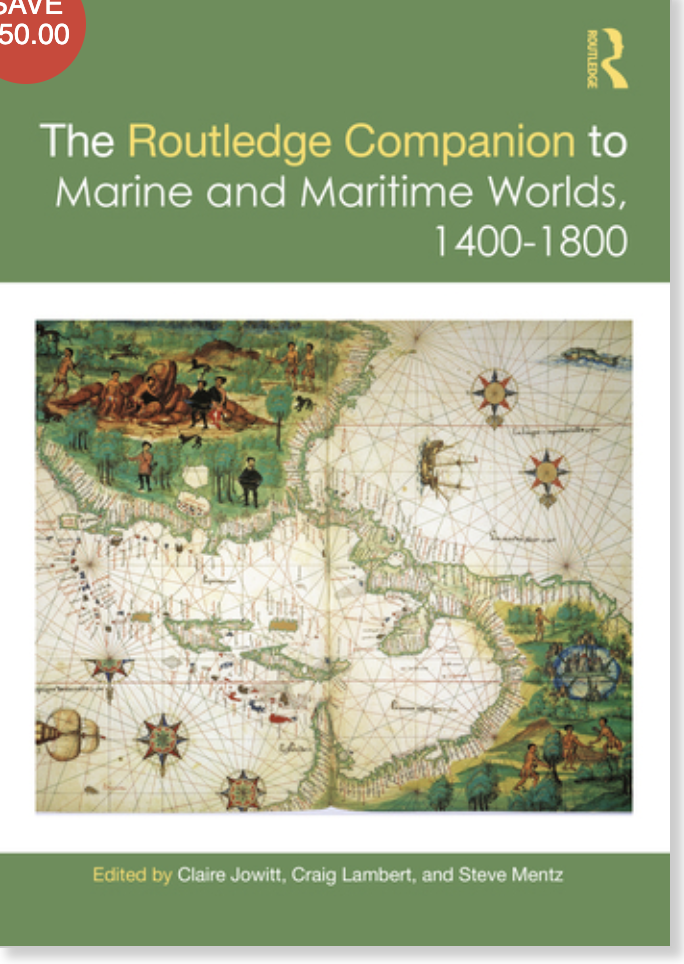
Another arrival during pandemic spring was this doorstop-sized collection of twenty-five essays on the early modern sea. The product of years of collaboration with my two amazing co-editors, Claire Jowitt and Craig Lambert, this book’s chapters range from ship design to regionalism in the Ottoman Med, from sea music to ships’ instruments. My own contribution places historical and literary shipwrecks in global perspective. Our overall aim, part of a larger movement in ocean studies, was to rewrite old-fashioned Euro-centric and “great man”-ish schools of maritime historiography. I learned so much working with the contributors and co-editors — if only we could all meet dockside somewhere for a beer!
Two academic journal articles
My essay, “Is Compassion an Oceanic Feeling?” was published in the Australian journal Emotions: History, Culture, Society (4:1 2020: 109-27). Ranging from Freud to Jane Austen to Cervantes, from contemporary poetry to blue humanities theory, it emerged from a generous invitation to speak at a conference on Compassion at the University of New England is Amindale, New South Wales, in October 2019. Back when people went places!
A co-authored essay, “Learning an Inclusive Blue Humanities: Oceania and Academia through the Lens of Cinema,” which I wrote with medievalist James Smith, was great fun to put together. Venturing out of our depths, we started this project by speculating about the symbolic role of the sea in the big-budget American films “Aquaman” and “Moana,” and ending up trying to educate ourselves about Oceania, non-Western conceptions of the ocean, and the ethics of academic writing. At times this essay felt like dipping an alien toe into unknown waters — I’m not an expert on either film or Pacific studies — but I learned so much from writing it. It’ll help me be a better critic and teacher moving forward.
Two podcast interviews
In late May, looking a bit fuzzy behind what would prove to be a dying laptop camera in this season of Zoom, I enjoyed speaking with Nicholas Allen of the University of Georgia’s Wilson Center in one of their “Coastal Conversations.” It was great to e-meet Valerie Babb of Emory University and Ryan Emmanuel of North Carolina State U, and also to re-connect with Alexandra Campbell, who I’d met at an Oceans even in Bristol in 2018, and Nicholas himself, who I lured out for a riverside breakfast at the great Kitchen Little in Mystic, also in 2018. This conversation was one of many great events the Wilson Center Zoomed out to the world during Covid-time. I can’t wait to see what they cook up when the world allows other things again!
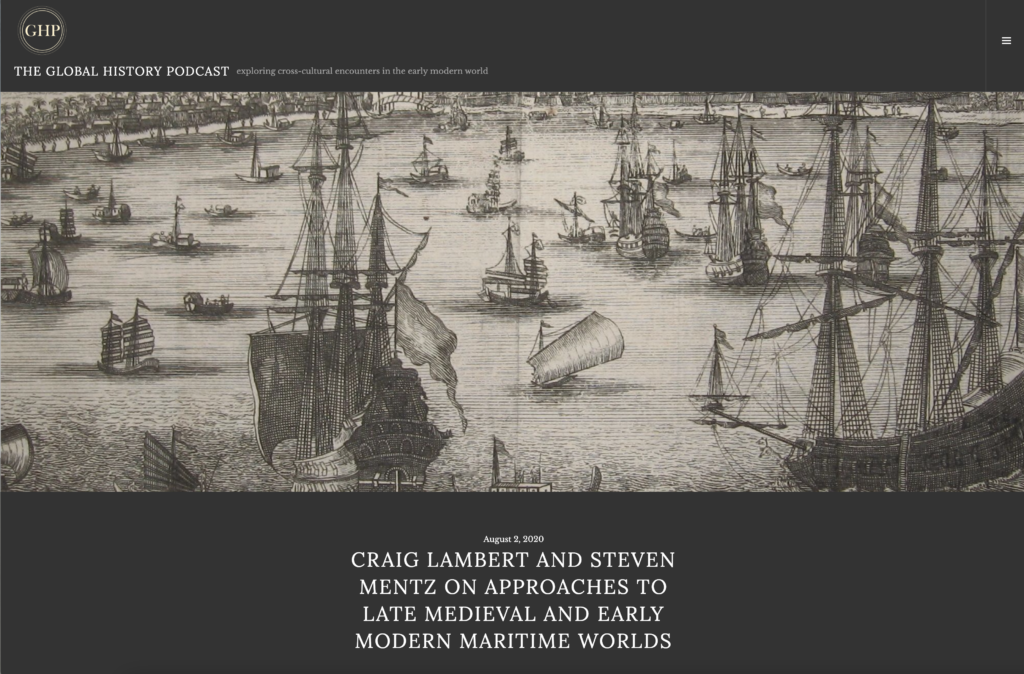
In dialogue with co-editor Craig Lambert, I podcast-chatted with Chase Smith on his Global History Podcast in early August. We were sorry Claire Jowitt couldn’t join us, but we had a great conversation about the forms and developments of maritime history, the project of our big book, and our hopes for new ways of conceiving and exploring the watery part of the world.
Nine Shorter Pieces, mostly on the web
I’ll run through these quickly, more or less in reverse chronological order. With a few exceptions, most of these were Ocean-related, since I’d hoped to put together something like a mini-book tour when that book appeared in March. That didn’t happen, but we did do a few fun Zoom events “at” Skylight Books in LA, the Harvard Bookstore, Greenlight Books in Brooklyn, and my local fav R. J. Julia in Madison, CT. It was great fun to get to know some of my fellow spring 2020 objects, including Dinah Lenney (COFFEE), Steve Jones (CELL TOWER), Erik Anderson (BIRD), Rolf Halden (ENVIRONMENT), and Ken Rosen (BULLETPROOF VEST)!
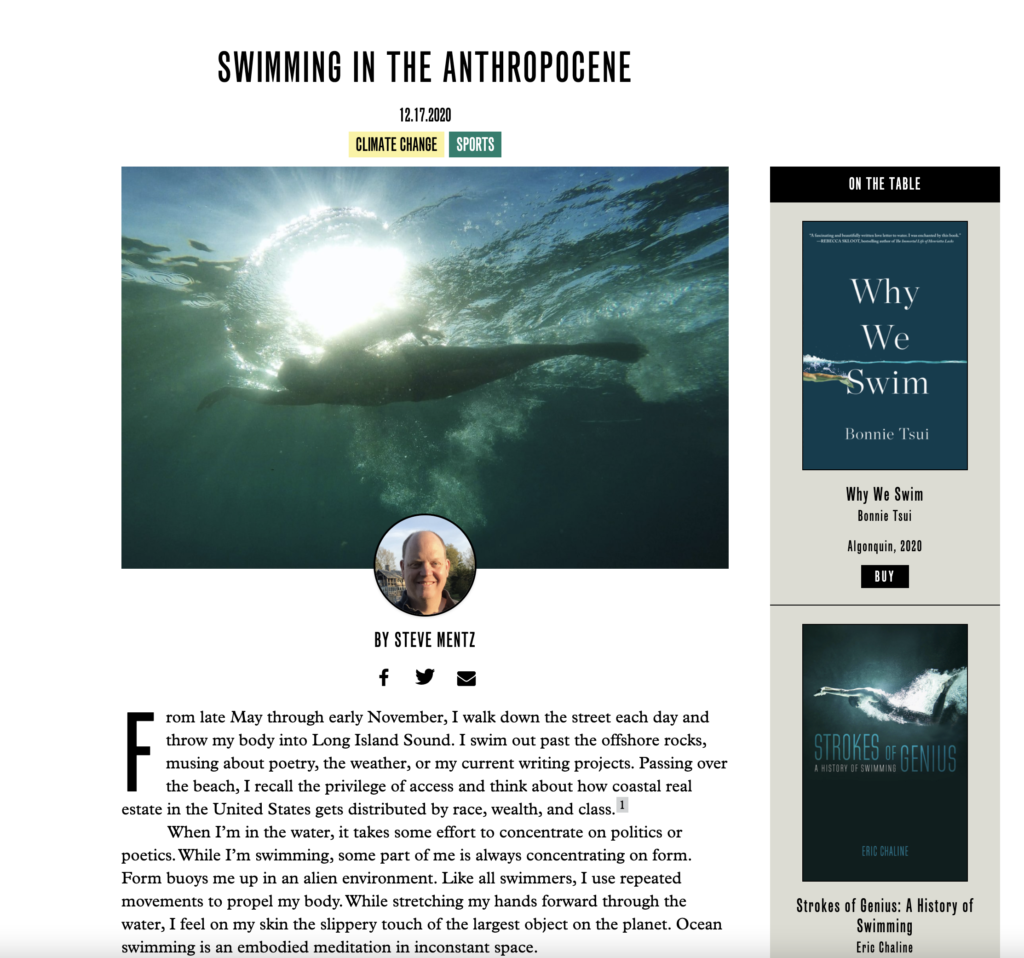
“Swimming in the Anthropocene” came out in December from Public Books. Written in response to swim-books by Bonnie Tsui (Why We Swim) and Eric Chaline (Strokes of Genius), the essay also captures a summer of everyday swimming in Long Island Sound and my hopes for this “embodied meditation” in our unsettled Anthropocene time.
My swim-autobio appeared on the Australian web-journal Swim People in November. It was great fun to splash down memory lane for this one!
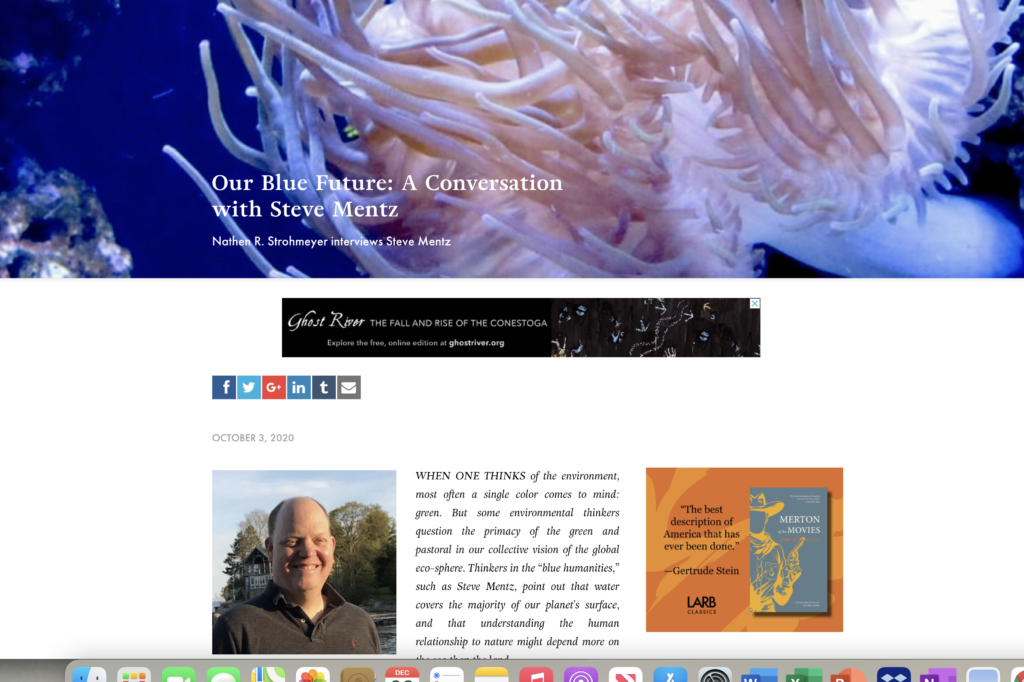
The first chapter of OCEAN appeared on the Rachel Carson Center’s Environment and Society Portal.
An interview I did with Nathan Strohmeyer for the Los Angeles Review of Books, entitled “Our Blue Future,” talked about OCEAN and much more.
In July, when Covid mortality in the USA had just topped 100,000, I published a piece in Stanford’s Arcade that made the case for Thomas Nashe’s great “Elegy in Time of Plague” as the Elizabethan masterpiece for our times. Today we are over 330,000 deaths, rising at a rate of 2,000 per day. Lord, have mercy on us!
In May, I was pleased to be invited by U Penn grad student Aylin Malcolm to contribute to her Blue Notes blog series hosted by the Penn Program in the Environmental Humanities. My post, “Wet Globalization in Viral Times,” placed a chapter from OCEAN in 2020 context.
In April, the good people at the Glasgow Review of Books excerpted a chapter from OCEAN that contrasted the viewpoints of Rachel Carson and Aldo Leopold, “The Sea and the Mountain: Two Histories of Environmental Thinking.”
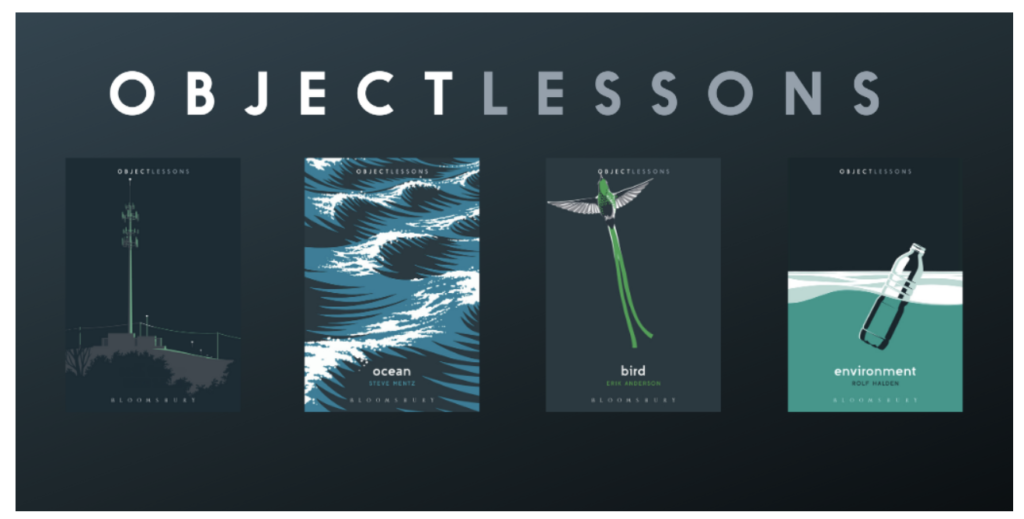
A bunch of the spring-time Objects wrote a many-handed blog post for Bloomsbury’s Object Lessons blog in early May. “A Conversation Among Objects” featured Steve Jones (CELL TOWER), Erik Anderson (BIRD), me (OCEAN), and ROLF Halden (ENVIRONMENT).
A beautifully-produced story about OCEAN and my #bluehumanities work appeared, in Italian and English, in the magazine SIRENE in Autumn 2020, written by the Italian journalist Rossella Venturi, who’s been stranded in Sydney since Covid started. No link to the article — but you can order the journal issue!
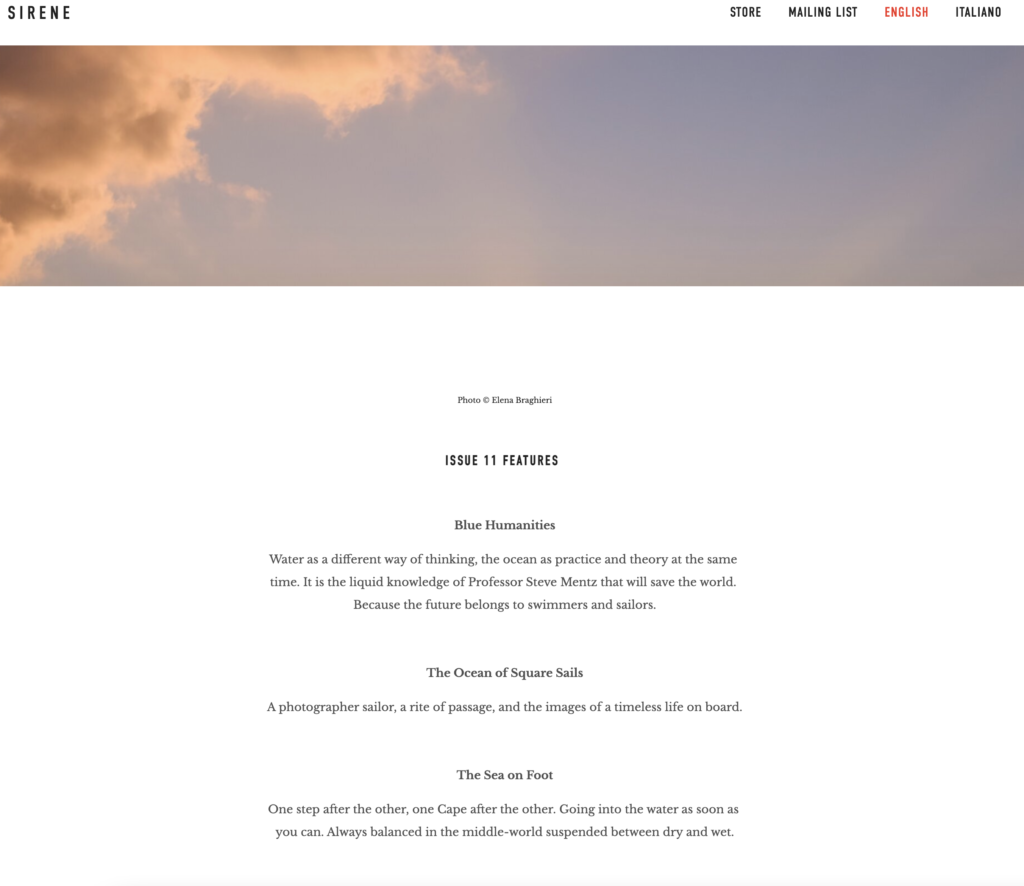
Public Lectures
It hasn’t been a year for my favorite kind of event, a public lecture when I drop into a community for a few days, talk about things I love, and get to learn from amazing people doing incredible things. 2019 was a high-water mark for this sort of thing for me, with talks in Sydney (twice), Amindale, Liverpool, Harvard, Columbia, Washington DC, Salt Lake City, and Wilmington, Delaware. Nothing like that in 2020!
But I did sneak in a great local “Early Modern Oceans” event at the CUNY Grad Center in midtown Manhattan, in February before everything closed. Sharing a seminar table with my blue humanities buddy Lowell Duckert of the University of Delaware is always fun, and it was also great to meet Maurya Wickstrom, who works on water and performance at the Grad Center.
I did one other mini-keynote this past October, in which I Zoom-delivered “Soiling the World: The Poetics of Compost from Ovid to the Anthropocene” to the annual symposium of the Urban Soils Institute in New York. Hoping to meet those excellent people in person next year!
Coming attractions?
A decent amount of my 2021 writing will be devoted to a new project, An Introduction to the Blue Humanities, which is under contract with Routledge Publishing. I’m likely to e-publish a few more short pieces, as occasions serve, and an academic article or two may emerge from the pipeline. I’m giving a keynote at a spring conference on “Sea Sense,” hosted virtually (alas!) at U. California Irvine. Maybe the deferred “Swimposium” in Dublin that got shifted away from its 2020 time will be reconstituted?
I’m looking forward to seeing new people and new places, when that becomes possible again!